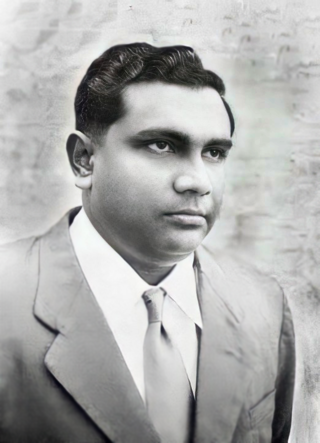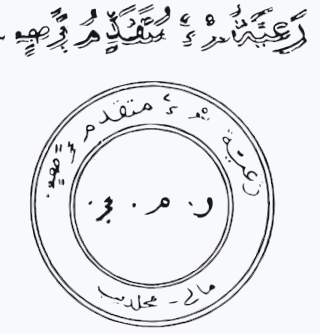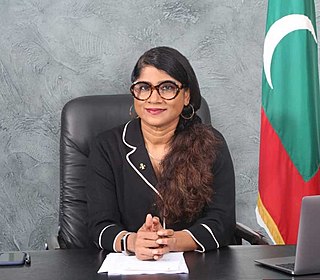
The history of the Maldives is intertwined with the history of the broader Indian subcontinent and the surrounding regions, comprising the areas of South Asia and Indian Ocean; and the modern nation consisting of 26 natural atolls, comprising 1194 islands. Historically, the Maldives held a strategic importance due to its location on the major marine routes of the Indian Ocean. The Maldives' nearest neighbours are the British Indian Ocean Territory, Sri Lanka and India. The United Kingdom, Sri Lanka and some Indian kingdoms have had cultural and economic ties with the Maldives for centuries. In addition to these countries, Maldivians also traded with Aceh and many other kingdoms in, what is today, Indonesia and Malaysia. The Maldives provided the main source of cowrie shells, then used as a currency throughout Asia and parts of the East African coast. Most probably Maldives were influenced by Kalingas of ancient India who were earliest sea traders to Sri Lanka and the Maldives from India and were responsible for the spread of Buddhism. Stashes of Chinese crockery found buried in various locations in the Maldives also show that there was direct or indirect trade contact between China and the Maldives. In 1411 and 1430, the Chinese admiral Zheng He 鄭和 visited the Maldives. The Chinese also became the first country to establish a diplomatic office in the Maldives, when the Chinese nationalist government based in Taipei opened an embassy in Malé in 1966. This office has since been replaced by the embassy of the People's Republic of China.

Al Ameer Ibrahim Nasir Rannabandeyri Kilegefan, KCMG, NGIV commonly known as Ibrahim Nasir, was a Maldivian politician adhering to the non-aligned ideology and staunch anti-imperialist. Nasir served as the Prime Minister of the Maldives from 1957 to 1968 under the monarchy, and later the first President of the Second Republic of Maldives from 1968 to 1978. Nasir served two terms, then he decided to retire, even though the People's Majlis voted him in for a third term. Nasir is remembered as an independence hero for guiding the Maldives to independence from the British Empire, he is also credited for establishing the tourism industry in the Maldives, as well as rapidly modernizing and developing the country and economy.

Sumuvvul Ameer Mohamed Amin Dhoshimeynaa Kilegefaanu, popularly known as Mohamed Amin Didi, was a Maldivian politician. He served as the first president of the Maldives and as the head of government between January 1, 1953, and August 21, 1953. Amin Didi was also the principal of Majeedhiyya School from 1946 to 1953.

"Qaumee Salaam" is the national anthem of the Maldives. The lyrics were written by Muhammad Jameel Didi in 1948, and the melody was composed by Sri Lankan maestro Pandit Amaradeva in 1972.

Abdul Majeed served as Sultan of the Maldives from 1944 to 1952. At the time, the Maldives were a British protectorate. Didi is recognized a reformer and has been described as "the father of the modern Maldives".
Majeediyya School is the first Maldivian government school, located in Malé, Maldives. It only accepted boys until the introduction of Primary Education in 2010, which allowed girls to attend the school as well. The English medium is followed throughout all subjects, with the exception of Dhivehi and Islam.

King Muhammad Fareed Didi, , the son of the Sultan Prince Abdul Majeed Didi, was the last Sultan of Maldives and the first Maldivian monarch to assume the title of "King" with the style of "His Majesty". He was the Sultan of the Maldives from March 7, 1954, until July 26, 1965, and King of the Maldives from July 26, 1965, until November 11, 1968. He was deposed in 1968 from the throne when Maldives became a republic, and died the following year in Maldives.
Dhidhdhoo is the capital of Haa Alif Atoll in the Maldives. Ranked the 2nd most populated place in the north after Kulhudhuffushi City. Located in the center of the atoll, Dhidhdhoo is governed by Dhidhdhoo Island Council under the Local Government Authority. This island is famous for having the least crime rates amongst the 10 most populated islands in the nation consecutively for a number of years.

Hussain Salahuddin, was an influential Maldivian writer, poet, essayist and scholar.

Established on the National Day of the Maldives, the first National Museum of the country was opened on 11 November 1952, by the Prime Minister at the time, Mohamed Amin Didi.
The National Library of the Republic of the Maldives was established in 1945. It serves as the Public and National Library of the country, maintaining modern literature. It provides a diverse collection of all published reading materials and documents within the country. The National Library is financed by the government and functions under the Ministry of Arts Culture and Heritage.

The vice president of the Republic of Maldives is the second-highest official in the executive branch of the government of the Maldives, after the president of the Maldives, and ranks first in the presidential line of succession. The vice president is directly elected together with the president to a five-year term of office.
A constitutional referendum was held in the Maldives on 17 and 18 April 1952. The new constitution would convert the country from a monarchy to a republic.

Muliaage, also transliterated as Mulee Aage, Mulee-age, Mulee'aage, or Muleeaage, is the official residence of the President of the Maldives. The Muliaage is located in the ward of Henveiru in the historic center of Malé. It is in close proximity of the Medhu Ziyaaraiy, the Friday Mosque, and the Munnaru.

Rayyithunge Muthagaddim Party was the first ever political party formed in the Maldives.

Ibrahim Muhammad Didi, was the Vice President of Maldives. While people demanded him to be president on terms that the vacancy of the office of the President leads to the succession of the vice president to the presidency, Ibrahim Didi served as acting president from September 2, 1953, to March 7, 1954, after the banishment of Mohamed Amin Didi. He was the first person to serve as Vice President as well as Acting President in the Maldives.
Aminath Faiza was a Maldivian Dhivehi language poet and author.

Mariya Didi is a Maldivian barrister and politician who served as the Minister of Defense of the Maldives. After being the campaign manager for president Ibrahim Mohamed Solih during the 2018 elections, she was appointed the nation's first-ever female Minister of Defence.

The Ministry of Finance of the Republic of Maldives is the ministry responsible for managing the public finances of the Maldives.
The royal palaces of Maldives (Dhivehi: ގަނޑުވަރު Is the royal palace of Monarch of the Maldives The Sultanate of Maldives was abolished in 1968














